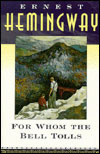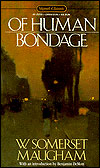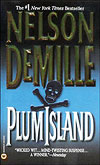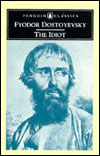
For Whom the Bell Tolls
By Ernest Hemingway
I first read this when I was in drama school in Australia. Like many Hemingway heroes, Robert Jordan, an American in the Spanish Civil War, is a man who tests himself. But what I come back to with Hemingway is how he captures the finiteness of love. The couples are destined to fail—you know that from the first moment—but he makes you believe that the memory is enough for these men.
By Ernest Hemingway
I first read this when I was in drama school in Australia. Like many Hemingway heroes, Robert Jordan, an American in the Spanish Civil War, is a man who tests himself. But what I come back to with Hemingway is how he captures the finiteness of love. The couples are destined to fail—you know that from the first moment—but he makes you believe that the memory is enough for these men.

Of Human Bondage
By W. Somerset Maugham
A child named Philip—with a clubfoot, no money, no social graces—is orphaned at the age of 9. This character has absolutely no advantages. But Philip wants to be an artist, and despite a lack of funds, he does the unthinkable—moves to Paris to pursue his art. My mother told me about this book when I was trying to become an artist myself. I went to New York with no money, didn't know anybody, but the idea that you could pursue something, even after repeated failures, was what I got from this book.
By W. Somerset Maugham
A child named Philip—with a clubfoot, no money, no social graces—is orphaned at the age of 9. This character has absolutely no advantages. But Philip wants to be an artist, and despite a lack of funds, he does the unthinkable—moves to Paris to pursue his art. My mother told me about this book when I was trying to become an artist myself. I went to New York with no money, didn't know anybody, but the idea that you could pursue something, even after repeated failures, was what I got from this book.

Plum Island
By Nelson DeMille
I love spy novels, and I love DeMille's hero. He's introduced in chapter one like this: "I, John Corey, by name, convalescing cop by profession, was sitting…deep in a wicker chair with shallow thoughts running through my mind." He's funny, he's tough, he's reluctant, he's cool. He always has a quick comeback. And he gets great women. He's a character I've always wanted to play.
By Nelson DeMille
I love spy novels, and I love DeMille's hero. He's introduced in chapter one like this: "I, John Corey, by name, convalescing cop by profession, was sitting…deep in a wicker chair with shallow thoughts running through my mind." He's funny, he's tough, he's reluctant, he's cool. He always has a quick comeback. And he gets great women. He's a character I've always wanted to play.

Don Quixote
By Miguel de Cervantes
Among the misadventures of Don Quixote, I always remember the novella of The Man Who Was Recklessly Curious, which is about two dear friends. One falls for the prettiest woman in town. Their marriage is unimaginably good, except the man can't help but test it. He convinces his friend to woo his wife, to see if her love is real. Short story—it ends in disaster. For me, those few chapters are the best example of why you don't mess with perfection.
By Miguel de Cervantes
Among the misadventures of Don Quixote, I always remember the novella of The Man Who Was Recklessly Curious, which is about two dear friends. One falls for the prettiest woman in town. Their marriage is unimaginably good, except the man can't help but test it. He convinces his friend to woo his wife, to see if her love is real. Short story—it ends in disaster. For me, those few chapters are the best example of why you don't mess with perfection.

The Idiot
By Fyodor Dostoyevsky
This novel revolves around an epileptic prince named Myshkin, who leaves a clinic in Switzerland to return home to Russia. I was living in England when I read this, at the end of the Cold War, and what I knew about Russia was its "otherness." Myshkin exists on compassion and emotion—he does appear the idiot. But there is something about his ability to forgive that I loved, that seemed to transcend the idea of "us" and "them."
By Fyodor Dostoyevsky
This novel revolves around an epileptic prince named Myshkin, who leaves a clinic in Switzerland to return home to Russia. I was living in England when I read this, at the end of the Cold War, and what I knew about Russia was its "otherness." Myshkin exists on compassion and emotion—he does appear the idiot. But there is something about his ability to forgive that I loved, that seemed to transcend the idea of "us" and "them."




